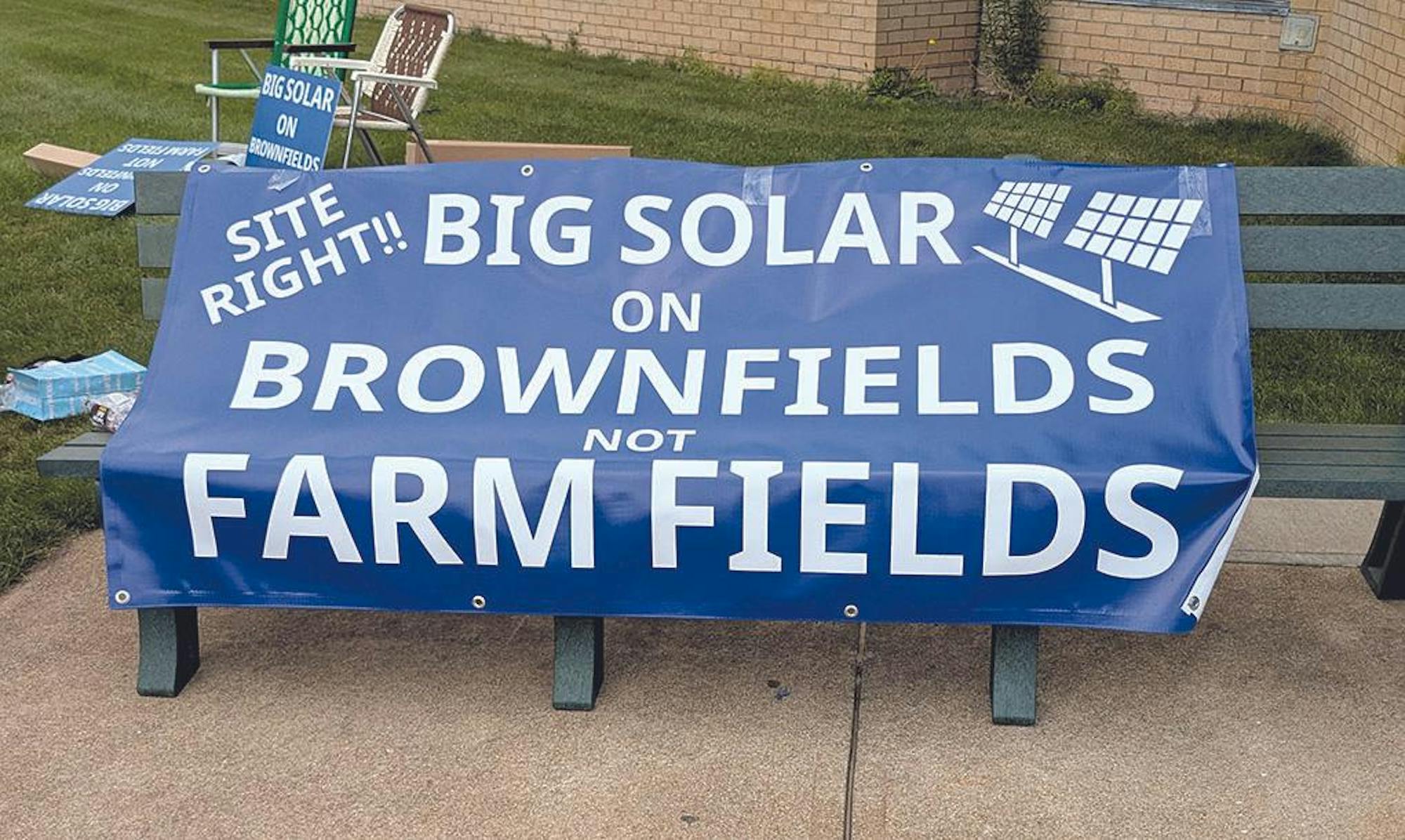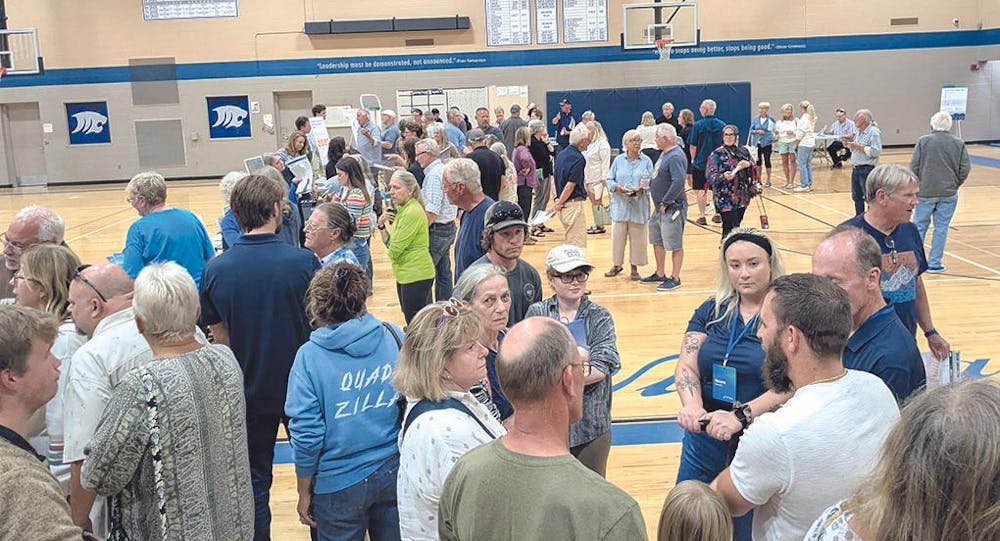MONTAGUE — Many turned out last Thursday as Lakeside Solar hosted a public engagement session at NBC Middle School regarding its proposed solar energy facility in White River Township.
The session is a required step under Michigan's Public Act 233, which allows developers to petition a governor-appointed commission for siting approval of renewable energy projects if the involved municipality has more restrictive requirements than the state.
The proposed project, which Lakeside Solar is overseeing as a subsidiary of Geronimo Power, would produce 150 megawatts and would span over 1,500 acres, the company said at the session. This is about nine times the size of the project currently operating in Montague Township on Sikkenga Road; Pine Gate Renewables manages that project.
Geronimo representatives were spread throughout the middle school gym to answer questions about different aspects of the project, including wildlife, noise levels, decommissioning and more. Some said they'd been instructed not to provide quotes to the media when approached by the Mirror, and the company's senior marketing manager Emily Morissette did not respond to a request for comment.
Geronimo was known as National Grid Renewables when the project was first proposed in 2022, but NGR sold its onshore renewable energy arm to a private equity firm, Brookfield Asset Management, this May. That company then rebranded as Geronimo, its original name before NGR bought it in 2019.
According to figures provided by Geronimo, the project would create three full-time jobs and 200 jobs in construction and related services. It would produce over $2 million in property tax revenue each year for the next 20 years if completed, with $1.28 million of that annual revenue going to the Montague school district. Additional funding would go to Muskegon County, townships, local fire and EMS services, local libraries and Muskegon Community College. The company would also set up a charitable fund that would disburse about $37,500 annually over the next 20 years.
The 1,500-acre number for the proposed project isn't news to those who have been kept abreast of objections to the facility being brought forth by a group of White River Township residents. The group, known on Facebook as Stop Industrial Solar in White River Township, arrived at the meeting hoping to press the company about why it had not chosen to use the renewable energy district the township created last fall and sited on the Chemours property. Much of that property includes brownfields, and under PA233 developers are required to submit explanations of why brownfields were not chosen for the project.


In this case, Lakeside Solar does not believe much of the brownfield land is suitable for the project, said Geronimo intern Cody Wangen when a resident asked him about it during the meeting. He added that if the renewable district land was used, the project would be limited to 20 megawatts, less than one-seventh of what Lakeside Solar's proposal will generate.
"Some of the people are very happy to be here and are really excited about the project, particularly the landowners that are signed with us," Wangen said. "I've had some conversations with people who are not happy that we're building this. They don't want it to impact their property and they don't want to see it. It's been a mixed bag."
Opponents of the project gathered outside the middle school to collect signatures for a letter they plan to send to township officials and state lawmakers in hopes of regaining local control of renewable energy siting decisions. The Michigan House of Representatives has already passed a bill that would do just that, though the bill would also have to make it through the state senate and be approved by Governor Gretchen Whitmer, each of which is far less likely given that Whitmer has made renewable energy a focal point of her second term.
In the interim, Lakeside Solar continues to push forward. According to information it shared at the meeting, if the project stays on schedule, construction would begin in 2027 and the facility would be operational by 2029.
The original outline for the project, when it was shared in 2022, called for the facility to be operational by 2025. Geronimo representative Amber Miller said the extra year lead time is in part due to equipment orders now taking 18-24 months to complete as opposed to the 6-12 months they once did.
Project opponents have questioned what will happen to the farmland once the solar equipment is no longer usable, believing the land will no longer be arable. Lakeside Solar maintains the land will still be arable once the design life of the project is complete. Construction manager Chip LaCasse said while he didn't know for sure how long Lakeside Solar anticipates this project lasting, most similar projects are planned for 30-35 years before the equipment's anticipated lifespan expires.
Opponents of the project maintain they are not against the use of renewable energy in general but are against the size and scope of the project Lakeside Solar is proposing, believing it would damage tourism and would negatively affect property values in the township, which at just under 16 square miles is less than half the size of most townships.
Real estate valuation consultant Joe Ricenec, who works for CohnReznick LLP, said at the meeting that in his experience, real estate values are not strongly affected either way by the presence of nearby solar energy facilities, but allowed that no two projects are the same.
"It's unfortunate that there's such a wedge driven between us, and people who are going, 'OK, you guys are denying climate change,'" said Melissa Lorenz, a township resident and opponent of the proposed project. "We supported renewables, but done right. I think there's too much of a good thing. It still is industrial, even though the state has classified solar as a crop. When someone moves into agricultural land, that's not what they're expecting. I think there's a middle ground that can be found, but these solar companies will not compromise."












